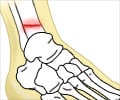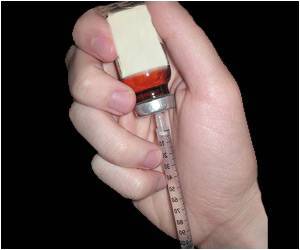Is aspirin effective for fractures? Yes, it is as effective as heparin in preventing blood clots following surgery to repair bone fractures.

‘Easily available and cost-effective aspirin can replace the blood thinner low-molecular-weight heparin for care after fracture surgery.’





Orthopedic trauma patients are commonly prescribed the blood thinner low-molecular-weight heparin to prevent blood clots for weeks following surgery. Not only does the medication need to be injected, but it can also be quite expensive compared to aspirin.Blood clots cause as many as 100,000 deaths in the U.S. each year, according to the U.S. Centers for Disease Control (CDC). Patients who experience fractures that require surgery – an estimated 1 million people in the U.S. annually – are at an increased risk of developing blood clots in the veins, including a fatal pulmonary embolism, which is a clot in the lung.
Current guidelines recommend prescribing low-molecular-weight heparin (enoxaparin), although research in total joint replacement surgery suggests a potential benefit of aspirin as a less-expensive, widely available option.
Aspirin Use after Fracture Surgery Fastens Bone Healing
In this new clinical trial, 12,211 patients with leg or arm fractures, necessitated surgery or pelvic fractures regardless of the specific treatment. Half of the participants were randomly assigned to receive 30 mg of injectable low-molecular-weight heparin twice daily. The other half received 81 mg of aspirin twice daily. The follow-up period after surgery was 90 days.The main finding of the study was that aspirin was "non-inferior," or no worse, than low-molecular-weight heparin in preventing death from any cause: 47 patients in the aspirin group died compared with 45 patients in the heparin group.
Secondary outcomes noted no differences in non-fatal pulmonary embolism. The incidence of bleeding complications and all other safety outcomes were similar in both groups. Of all the outcomes studied, the one potential difference noted was fewer blood clots in the legs in the low-molecular-weight heparin group.
Advertisement















